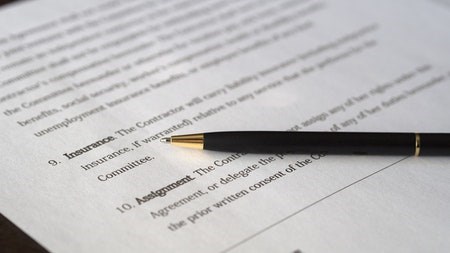The lease agreement is a legally binding document that contains all the necessary stipulations to help landlords and tenants avoid any complications or misunderstandings regarding the responsibilities of each party for the duration of the tenancy. Setting this up correctly at the start is crucial to avoiding costly legal battles down the line.
According to Adrian Goslett, Regional Director and CEO of RE/MAX of Southern Africa, the more that is covered in the contract, the smoother the rental should run, as each party knows exactly what is expected of them. “No aspects of the rental agreement should be left open to interpretation. The document should cover all aspects, such as acceptable tenant behaviour, breakage costs, the preferred method of payment and the date that the rental is payable, to name but a few. Time frames should also be allocated to the required clauses as well as penalties, should any condition be breached,” Goslett explains.
“Common breaches of contract for tenants include: defaulting on payments, making structural changes to the home, or keeping pets when the lease agreement stipulates not to. Likewise, a common breach of contract for landlords is the failure to maintain aspects of the property. Tenants and landlords should check that these aspects are covered in the lease agreement to avoid issues during the tenancy,” he adds.
In a standard lease agreement, the document usually starts by naming the two parties involved in the lease. It then details a list of definitions so that nothing mentioned in the contract can be left open to interpretation. Following this, the agreement then stipulates the time frame for the lease and a renewal clause that outlines how the renewal procedure will work. The agreement will then state the amount payable in rent, the date by which rent should be paid, penalty charges for late payments and the banking details where the rent should be paid into.
Next, the agreement will stipulate the deposit amount and should also mention under which circumstances this amount can be used by the landlord. It should also state how this money will be repaid to the tenant at the end of the lease period.
Other common clauses to include in a lease agreement include a detailed outline of who is responsible for maintenance and repairs, stipulations around sub-letting, procedures around terminating the lease, procedures for breach of contract, and a section that outlines any rules against pet ownership and structural changes to the property.
Following these clauses, the lease agreement usually ends with the signatures and full names of both parties involved as well as witnesses for each party.
Equally important is for the landlord to have a detailed agreement with the management agent should they decide to use one. According to Goslett, the landlord will be able to sign a mandate with the rental agent in which all terms and conditions of the agreement are outlined, including things such as the commission structure and what is expected from the agent.
“For a percentage of the rental income, a rental management agent will assist the landlord with tenant selection, reference, and credit checks, as well as taking care of the day-to-day management of the property. They will be up-to-date with the latest legal and regulatory developments to protect landlords and tenants. For this reason, it is strongly advisable to involve a rental agent from the start so that they can help set up a lease agreement that protects both parties. If a property rental is handled correctly from the start, with ongoing professional management, many unnecessary and unpleasant situations can be avoided,” Goslett concludes.




